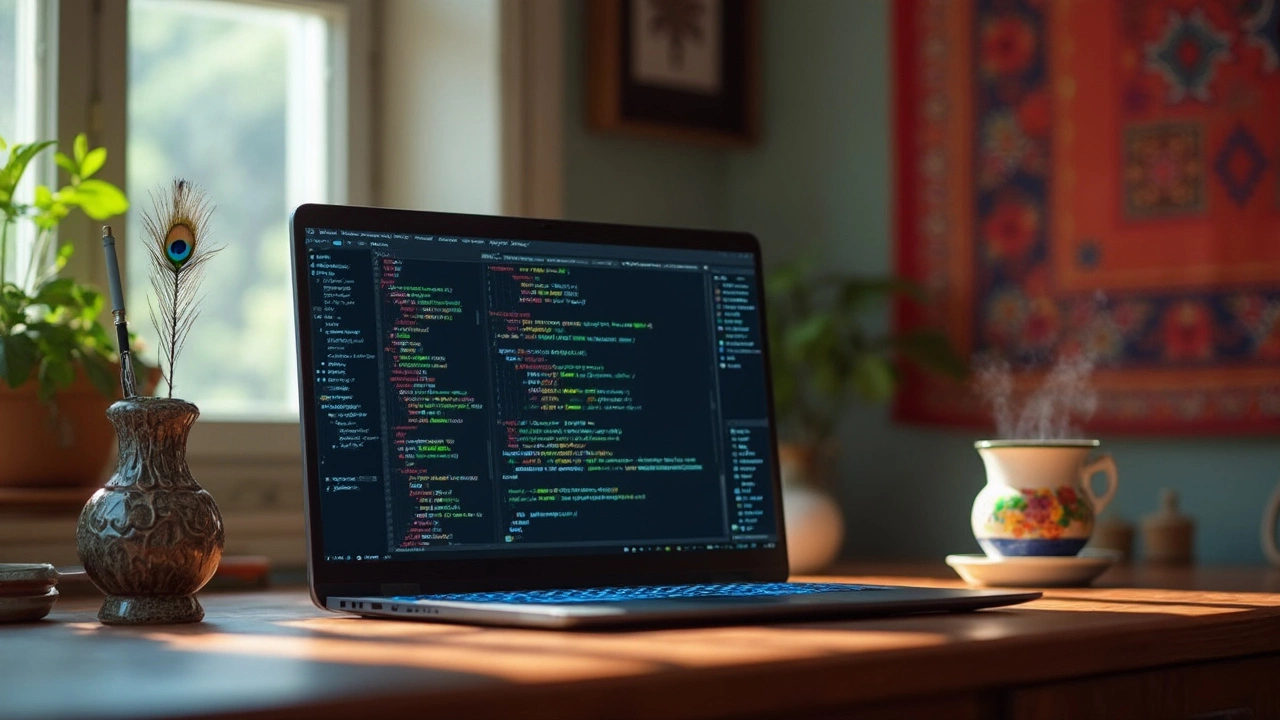Programming Laptop: What You Need for Coding, Learning, and JEE Prep
When you're learning to code, your programming laptop, a computer optimized for running development tools, compiling code, and handling multiple applications at once. Also known as a coding laptop, it's not just about brand or price—it's about whether it can keep up with your workflow. If you're juggling online coding classes, JEE prep, or even NEET coaching notes, a weak laptop will slow you down faster than bad internet.
A good programming laptop, a computer optimized for running development tools, compiling code, and handling multiple applications at once. Also known as a coding laptop, it's not just about brand or price—it's about whether it can keep up with your workflow. If you're juggling online coding classes, JEE prep, or even NEET coaching notes, a weak laptop will slow you down faster than bad internet.
You don’t need a gaming rig to code. But you do need at least 8GB of RAM—less than that and even Chrome with five tabs will make your system freeze. A solid-state drive (SSD) is non-negotiable. Hard drives are slow. Period. If you’re running Python, Java, or VS Code while also opening PDFs of JEE chemistry notes, your laptop needs to handle multitasking without lag. Intel i3 or AMD Ryzen 3 processors are the bare minimum. Go for i5 or Ryzen 5 if you can stretch your budget. Battery life matters too—especially if you study in libraries or train stations. A laptop that dies in two hours isn’t a tool, it’s a liability.
And here’s something most guides skip: if you’re preparing for JEE while learning to code, your laptop isn’t just for programming. It’s also your textbook reader, video lecture player, and practice test terminal. That means screen size and keyboard comfort aren’t luxuries—they’re survival tools. A 13-inch screen is fine if you’re on the move, but 15 inches gives you more room for code and notes side-by-side. Backlit keyboards? Helpful if you study late. Lightweight? Crucial if you carry it to coaching centers.
Some students think they can use a ₹15,000 laptop for Python and JEE. They can. But they’ll spend half their study time waiting for compilers to load. That’s wasted time. Time you could’ve spent solving problems instead of staring at a spinning cursor.
What you’ll find below are real posts from students and teachers who’ve been there. They’ve tested laptops under pressure—running IDEs while streaming lectures, coding while reviewing organic chemistry mechanisms, and surviving exam season without a single crash. You’ll see which models actually work for Indian students, what specs to ignore, and how to pick a laptop that lasts through your board exams, JEE, and beyond.
Choosing the Right Computer for Coding
Feb, 27 2025
Choosing the right computer for coding depends on several factors including the type of programming you'll be doing, your budget, and whether you need portability. While you don't necessarily need the most expensive hardware, a computer with a solid processor, enough RAM, and a reliable operating system is key. Consider the specific tools and environments you plan to use, as well as potential future needs. Knowing the basic requirements can help you make an informed decision and avoid unnecessary expenses.

